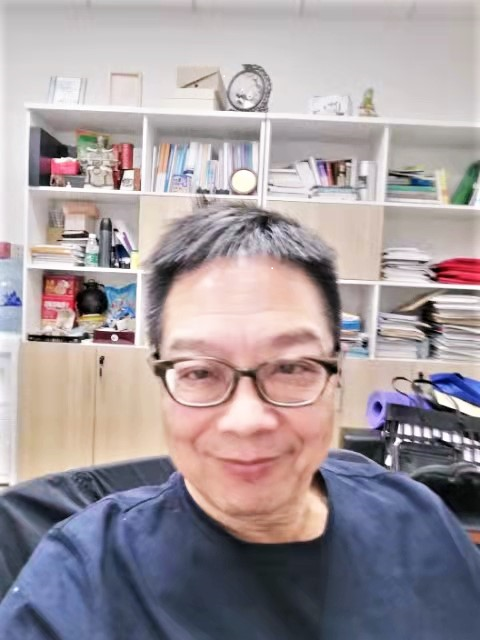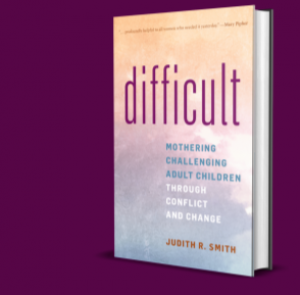Latest Episodes

130 Social Workers Across Borders
Professor Johnston Hong-Chung WONG is a welcome return guest. He co-founded —Social Workers Across Borders in 2005 and talks of social work in mainland China and Hong Kong. Since then, this ,mainly voluntary, charity, has responded to tsunamis, earthquakes and other natural disasters showing that social work skills are tranferrable into the front line and can help in the immediate aftermath of tragedy. It also demonstrated that they can operate in a humanitarian, neutral way. They can work alongside organisations such as International Red Cross, coordinating services and supporting the most vulnerable. The normalisation of communities after traumatic upheaval with professional assessment of need, crises intervention and the directing of resources to facilitate treatment. Ukraine does need enormous support immediately and, eventually, in reconscruction. We talk of this.
Social Workers Without Borders is a post-disaster humanitarian care organization, currently working in Greater China, especially the Mainland, and is committed to providing spiritual reconstruction and development of social work projects for post-disaster residents. Regardless of politics, race, religion or nationality, we are mainly professional social workers, uphold the belief that love knows no borders, provide professional voluntary services, and provide emotional and mental health to the vulnerable.
Johnston Wong, Professor in Social Work and Social Administration, started his career as a youth worker in Hong Kong. His early academic interests focused on youth and family work, branching out to psychological stress, unemployment and industrial social work. In Hong Kong he participated in various district and central government committees related to youth policies, education, social care and hospital governance. Since 2005 he was involved in many post disasters social work interventions and become the non-executive director of the Social Workers Across Borders. www.swab.org.hk In 2006 he joined UIC as a Faculty member and helped to design the Service Learning Scheme and Emotional Intelligence Programs as parts of Whole Person Education. Later he was appointed as the Chief of Student Affairs. He taught many courses like Social Work and Chinese Laws, Disaster and Emergency Management, Healthcare Social Work, Social Group Work and Crisis Interventions.
Podcast: Play in new window | Download
Subscribe: Spotify | Blubrry | Podcast Index | Deezer | Youtube Music | RSS

129 Mothers with challenging adult children
“Difficult, mothering challenging adult children through Conflict and Change”. is a new publication by Judith Smith just released by Roman and Littlefield.
Judith R. Smith, PhD, LCSW, is a senior clinical social worker, therapist, researcher, and professor at Fordham University. She is a leader in gerontological research focusing on women’s experiences as they age. She is a Fellow at the Gerontological Society of America and a Faculty Scholar at Fordham’s Ravazzin Center on Aging and Intergenerational Studies.
So many mothers have to manage through enormous challenges including, regular violence, from adult children with either mental health problems, substance abuse, profound learning disabilities or other chronic conditions. She offers real stories as learned experiences, shining a light on the shame, embarrassment and fear that pervades so many families.This is a book for all whether carers, or cared for and advocates structural change in what amounts to one of the most hidden challenges to our communities.. Judith takles these issues and looks for ways to improve social policy and treatment as well as basic awareness raising of the scale of the need.
Difficult is for parents, concerned family and friends, health and mental health professionals, and policy makers. The book provides resources for women to find social support, stay safe, and engage in self-care.
Difficult: Mothering Challenging Adult Children through Conflict and Change Rowman & Littlefield

Podcast: Play in new window | Download
Subscribe: Spotify | Blubrry | Podcast Index | Deezer | Youtube Music | RSS

128 More voices from Ukraine 2
Raisa Kravchenko adds to more voices from Ukraine. She was, until very recently, Executive Director, Board Chair and co-founder in 2004 of the All Ukrainian NGO Coalition for Persons with Intellectual Disabilities. It is a network of 118 Ukrainian local non-governmental organizations and agencies for persons with intellectual disabilities representing about 14 thousand families from all the regions of Ukraine. https://www.facebook.com/vgocoalition,https://www.prosto-pro.com.ua/, www.inteldisabilities-coalition.com.ua Since 2020 the NGO Coalition is a the member of Inclusion Europe ( https://www.inclusion-europe.eu/about-us/#members )
Raisa is one of the foremost campaigners and recognised authorities in this field. She still heads her local. regional group and, with a disability herself,supports her adult son who has learning difficulties. Obtaining prescribed medication is increasingly difficult e.g. Raisa’s district of 200,000 people had 12 prescribing psychiatrists. Now there are 2 and, understandibly, those in poverty cannot look to buy elsewhere if that is even possible. With the disruption of the Pandemic and now the war, services that were already limited are at breaking point.
Ukraine, until recently, addressed the needs of those with intellectual disability with a medical model, supported by the efforts of the voluntary sector. Psychiatric assessments and medication were the norm. Day care and respite provision was mainly up to families. Personal assistants were found and engaged at cost to families, especially hard for those in poverty.
Currently, a lot of Ukrainian families taking care of a person with ID had left Ukraine for Europe as war refugees and talk of the warmth, care and support from the partner NGOs, the Governments of European countries and all European people.
The coalition states that quite a lot of families stay at home whatever the situation in their localities due to peculiar condition and perception of their loved one with intellectual and behavior disabilities. Also, the mothers (main care providers) survive significant burn out and have physical diagnoses more often than average people everywhere in the world. And they also can not stand the complicated trip. Persons with autism could hardly stand an abrupt change of their place of residence and people around, and their families also stay home in spite of bombing and hardships. In any case, the care giver has to dedicate all her/his time to care as all the supporting community based services stopped. It is estimated that 45% of all those diagnosed with ID have a dual diagnosis of behavioural problems making care even more difficult.
Totally, over 261 thousand Ukrainians are awarded official disability status due to a psychiatric diagnosis. Naturally, all day centers are closed, all community based services stopped. Care institutions for above 30 thousand Ukrainians with intellectual and psychosocial disabilities try their best to continue care and both national and local authorities support their specific war needs. But it’s just not nearly enough.
Before the war NGO members provided community based services and self-help peer support to all their members with a minimum support from the public funds which is not available now due to the onset of war.
There is some support from Inclusion Europe but much more is needed as displacement, dislocation and fear drive through communities and greatly increase existing risk to very vulnerable people and their carers.
There is much need fro financial help and the following are the assessed target areas for support.
- Donations to the NGO Coalition Bank account in Euro for the individual aid to families taking care of a person with ID – the Tax Code of Ukraine permits to provide without tax a donation of 3470 UAH per year per person. ( about £90 or $120 )
- Professional services of the Social Worker for the family of persons with ID to get access to the general humanitarian aid programs as well as the individual work aimed at meeting urgent needs caused by the war (e.g., health emergency, broken flats by bombs, gitting prescriptions for the psychiatric medicines, etc). Expected cost to cover 20-30 families is 900 Euro per month including taxation and travel costs.
- Support to families through financing of personal assistant wherever the family is. The average cost for individual assiatant for one person with ID according to individual needs is 500 Euro per month including taxation. Some mothers can not leave the adult or child autistic son and daughter for more than 1 hour to purchase food, medication or stand in line at the bank machine, so, personal assistance is a basic need.
Following the war these are estimated needs:-
Rehabilitation with the separate programs for persons with intellectual / behavioral problems, care givers, care staff.
Restart of the service provisions to Ukrainians with ID by NGOs (we would appreciate highly the crisis donation of 15000 euro per NGO)
Initiation of the supported living program for those Ukrainians with ID who lost care because of the war (whose care givers are perished, became disabled, homes ruined etc).
Bank details: Euro account: UA203052990000026005010114058, SWIFT PBANUA2X. Code 26521104
I hope to bring more voices from Ukraine in the near future.
____________________________________________________________________________________
Podcast: Play in new window | Download
Subscribe: Spotify | Blubrry | Podcast Index | Deezer | Youtube Music | RSS